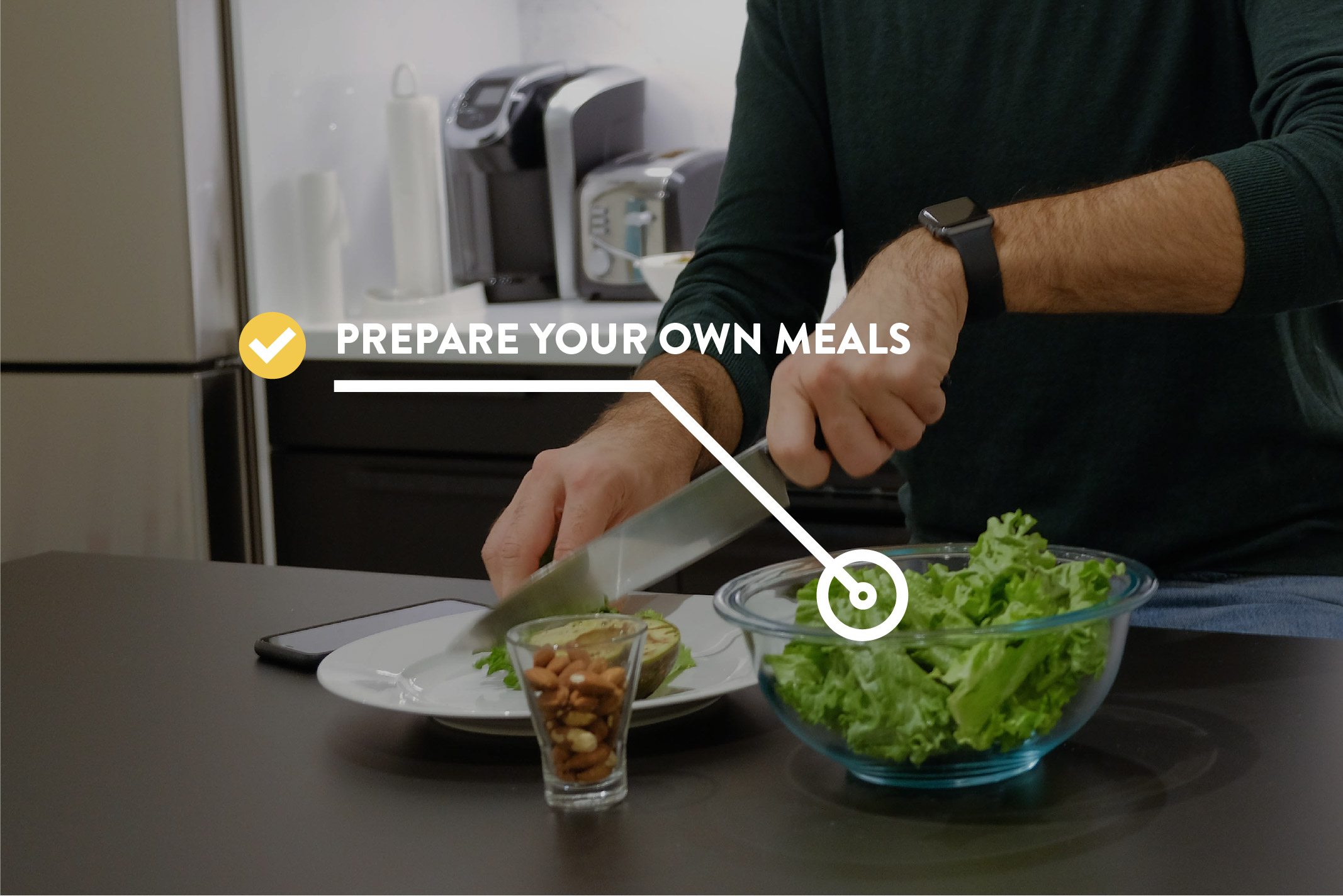
Cooking for yourself is what this habit boils down to. When considering including healthy eating in your life, cooking at home is one of the easiest means of doing this. Preparing your own food carries many health benefits along with it.
How eating at home affects your health
Most directly related to weight management and nutrition, the caloric value of food made at home will be less and the quality will be better. Research has shown that the daily average of calories consumed from eating out relative to making food at home is around 200 calories a day. These calories largely come from an increased amount of fat and sugars found in foods from restaurants [1]. It is also found that those who eat out more tend to eat significantly fewer vegetables, and are usually of a greater Body Mass Index (BMI) than those who make food at home [2].
There are peripheral health benefits to cooking at home as well. For example, you can save a lot of money. Restaurants can charge up to 300% more than the food cost to make the food. The act of cooking can also be considered a creative outlet, adding to better mental health, as can the social aspects of making and enjoying a meal together with friends or loved ones. Children and adolescents have been shown to benefit greatly in mental health from regularly having dinner with family [3].
Help your clients become home chefs
To begin helping your clients with their nutrition, this can be a great place to start. A challenge here is that some clients won’t have much skill or knowledge around cooking. So for those clients, this habit might be a bit advanced to start. Their go-to meals may be pre-packaged and pre-prepared.
To overcome this barrier, generating a meal plan through Evolution Nutrition (or from a registered dietitian) and linking it to their profile on Trainerize will provide a lot of meal options for them to follow. In a similar vein, start small by asking your client to learn to make their favorite meal (if they don’t already know how).
Remember, with habits, you want to start small and build from there. Building from one meal consistently across a week and over subsequent weeks will help automate the behavior before addressing other meals in a day.
For example, start with breakfast until that becomes an automated habit. Then add in lunch. Then a midday snack, and on, and on. Habit tracking (and the streak feature!) will help clients stay motivated to carry the habit throughout their week.
Start with a workweek, then advance to include the weekends. You may need to do some continuous coaching through the messaging system to help guide clients to healthy cooking resources. It’s helpful to generate a list of cookbooks that align with your nutrition perspective too and disseminate them through Trainerize’s in-app messaging feature, or post in the attachment feature on your client’s profile.
Preparing your own meals in a nutshell:
- Making your own food decreases the total calories in your meals, and improves the quality of nutrients (i.e. less sugar, fat, salt) in the foods consumed.
- Other benefits include saving money, having a creative outlet, and improved social connections.
- Introduce making one meal a day successfully, and build from there.
References:
- https://blog.myfitnesspal.com/3-reasons-why-you-should-cook-all-your-meals/
- Rebecca A. Seguin, Anju Aggarwal, Francoise Vermeylen, and Adam Drewnowski, “Consumption Frequency of Foods Away from Home Linked with Higher Body Mass Index and Lower Fruit and Vegetable Intake among Adults: A Cross-Sectional Study,” Journal of Environmental and Public Health, vol. 2016, Article ID 3074241, 12 pages, 2016. https://doi.org/10.1155/2016/3074241.
- Eisenberg ME, Olson RE, Neumark-Sztainer D, Story M, Bearinger LH. Correlations Between Family Meals and Psychosocial Well-being Among Adolescents. Arch Pediatr Adolesc Med. 2004;158(8):792–796. doi:10.1001/archpedi.158.8.792
